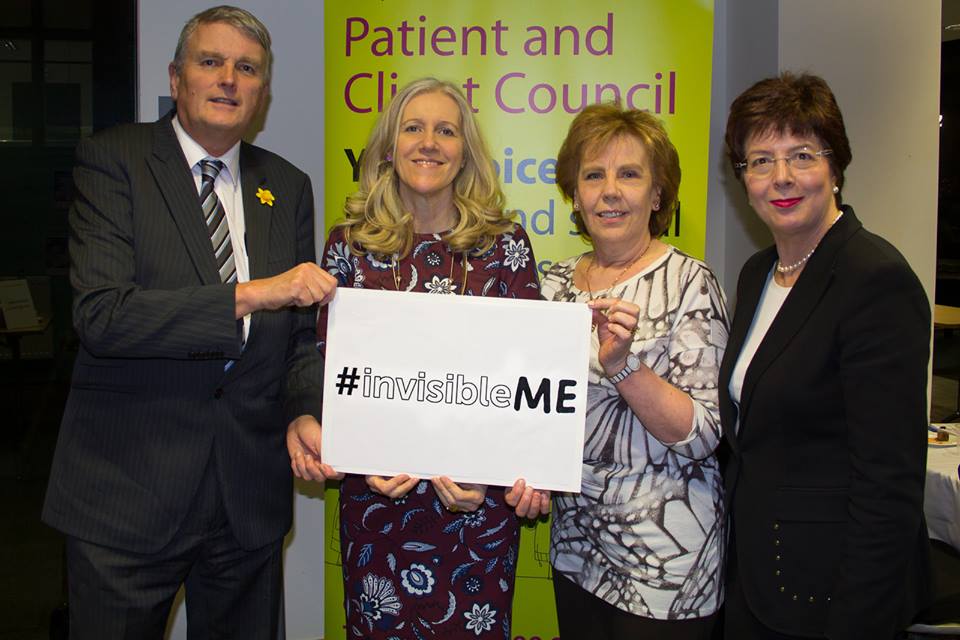As always, I need to manage my time and my health better. I’m busy or asleep- but it’s nearly rare disease day, so we should know to expect no better. I’m less concerned with conference detail this year- that may come back to bite me- but I’m doing assorted on line courses and preparing presentations for several events, so my brain is full.
I rarely do anything in the evenings. I flop in a heap beside the fire and snuggle little people or a little dog. Sometimes I read, mostly I watch TV. (What will I do now that Wolf Hall has finished?)
But Monday’s event was important, and local. I’m on the steering group for the project of which this was part- I didn’t want to miss it. It was an opportunity to chat to politicians, patients and policy makers about ME & fibromyalgia. All I had to do was blather to the folk I was sitting beside. They’d come to learn and I tried to help. Patients and carers told their stories, very powerfully. The emotion was clear. Invisible conditions, invisible people. It was moving and exhausting.

One man was overwhelmed and unable to participate. His wife tapped me on the shoulder.
I read his story to the audience. A story of many years, much expense, and little change. A story of worrying that his wife was dead in the bed. A story of staggering disbelief and arrogance from health professionals. A story of a family of warriors. It was an honour to share that. It needed to be heard, to be listened to and to be valued.
I tell the story of my mum at the start of every presentation. It’s why I do what I do. I’m looking forward to all the stories I will hear at our event next week.
Marie reminds us why it’s not just important to hear stories. It’s important to tell stories. It’s part of who we are, and how we heal. How we stop ourselves from staying invisible.